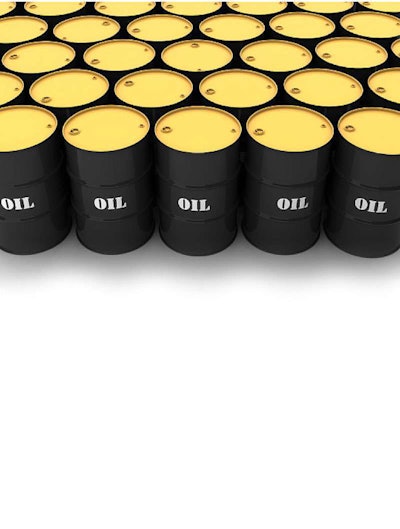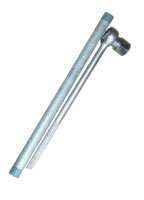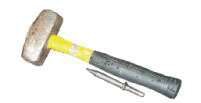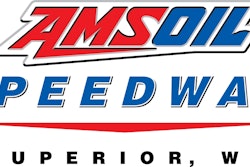
The do-it-yourself oil change is a standard for many owner-operators, especially those with their own authority. The dollars saved with DIY are modest for a one-truck operation, but many owners like to perform the operation partly for the satisfaction.
Significant savings are available if you’re running a small fleet and can justify buying oil in a 55-gallon drum or, better yet, having it delivered to your own bulk tank. Disposal is normally an associated cost, but if you live near an oil-recycling refinery, you might be able to sell your waste oil. As fleet size approaches 10 vehicles, it can pay for you to burn your own oil to heat your maintenance shop.
Major refiners often don’t handle distribution of bulk oil to the individual customer. They leave that to independent businesses willing to invest in storage and transportation equipment and sales and service staffing. A first step in determining whether buying bulk oil makes sense for you is to contact a local distributor and explore the pricing structure.
“The economics are there with bulk oil,” says Tim Genrich, division sales manager at North American Lubricants, “though with smaller fleets the big advantage to buying in 55-gallon drums may be convenience” when compared to running to the store for gallon jugs.

Genrich believes buying in bulk becomes profitable for fleets “in the three- to five-truck range. The minimum bulk delivery is typically in the 100- to 150-gallon range.” He says you might be able to save $1 or more per gallon when buying in 55-gallon drums oil that costs as low as $13-14 per gallon in gallon containers. Or you could get a quality 15W-40 engine oil at slightly more than $10 per gallon when having the product delivered in bulk to your tank. Genrich warns that buying in bulk requires handling cash flow carefully because you can easily “end up with a $2,000 invoice.”
Distributor Jay Gress Inc. “will provide the tank for the customer if he uses 1,000 gallons a year,” says Joe Dalesandro, a territory manager. “The tanks typically hold 250 gallons, so you end up with four to five deliveries a year.”
He says you can get one premium engine oil for about $8 per gallon in a 55-gallon drum, versus $12 to $13 at the best gallon jugs prices. Bulk oil would go for about $7 per gallon.
YEARLY COSTS
Fleet size No. of changes/gallons Gal. jugs Drums Bulk
$13/gal. $10/gal. $8/gal.
1 truck 5 / 60 gal. $780 $600
3 trucks 15 / 180 gal. 2,340 1,800
5 trucks 25 / 300 gal. 3,900 3,000 2,550
10 trucks 50 / 600 gal. 7,800 6,000 5,100
Payback time
To change oil yourself, you’ll need to invest in equipment you may not have. The tools you’ll need are likely to cost at least $300. If running five trucks, you’ll need to spend at least $600 on tools and an oil storage tank to buy in bulk.
BASIC RETURN ON INVESTMENT FOR EQUIPMENT. Expect more than two years if you run one truck, but considerably less than a year if you have three or more.
SELLING YOUR USED OIL. If you live near a facility that accepts used oil in good condition for re-refining, you could pick up $2 per gallon for your drain oil. That would effectively increase your savings when buying in bulk to $1,950 with five trucks and $3,900 with 10 when buying in bulk.
BURN YOUR USED OIL. Small fleet owners can use a waste oil heater to heat their shop. Prices for Clean Burn shop heaters start at about $4,000, but if you could burn 400 gallons or more per year, saving over $1,200 in heating oil costs, the payoff could work in your favor, especially if you had been paying for used oil disposal.
Tools needed to perform an oil change
Changing oil is one of the easier truck maintenance jobs. One reason is that the truck does not need to be raised off the ground and supported during an oil change. All that is needed are tools to remove and replace the drain plug and oil filter, something to punch a hole in the filter to drain it, and ways to collect and store the oil.

Craftsman large sockets 1 1⁄2-1 3⁄4-in.: $25-$28, Large ratchet drive: $90, Pipe 1 1⁄2-in. diameter pipe to use as a cheater: $15. If you want to add a torque wrench to torque the drain plug: $250.
Ed Geiger, leased to FedEx Ground, has a dedicated run from the western Philadelphia suburbs to Woodbridge, N.J. Here are the tools he uses to change oil on his Kenworth T800.
• Socket drive and wrench that fits the drain plug, plus cheater pipe.

Punch set: $40
• Hammer and punch to drain oil filter.
• Wide band oil filter wrench for removal and final tightening of oil filter(s).
• Pan for collecting oil.

Heavy-duty strap wrench for oil filters: $15. Wide, large diameter band type wrenches go for $25 at OTC tools.
• Buckets for saving and transporting oil to waste facility.
• Note that Geiger rigged a special bucket for draining his oil filter. This makes handling the filter cleaner and more convenient. All you need is an inexpensive bucket, a sheet of coarse screen that you can cut to fit, and three turnbuckles.
Bulk oil tools:
55-gallon drums: Vestil RDP-55 manual drum and pail oil pump from Northern Tool, $45.
Bulk tanks: 225-gallon horizontal (49-in. by 38-in.) leg tank from The Tank Store, $270.










